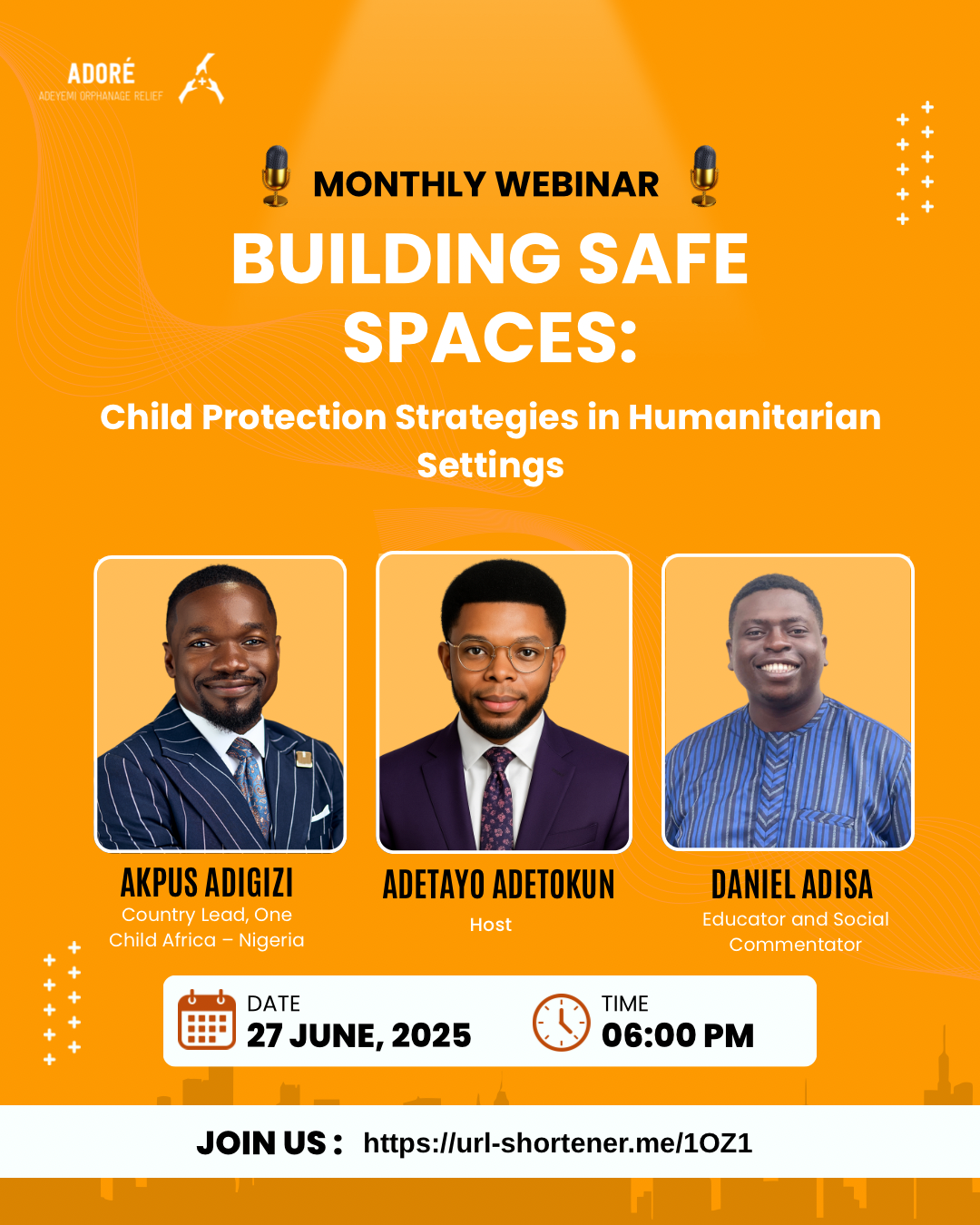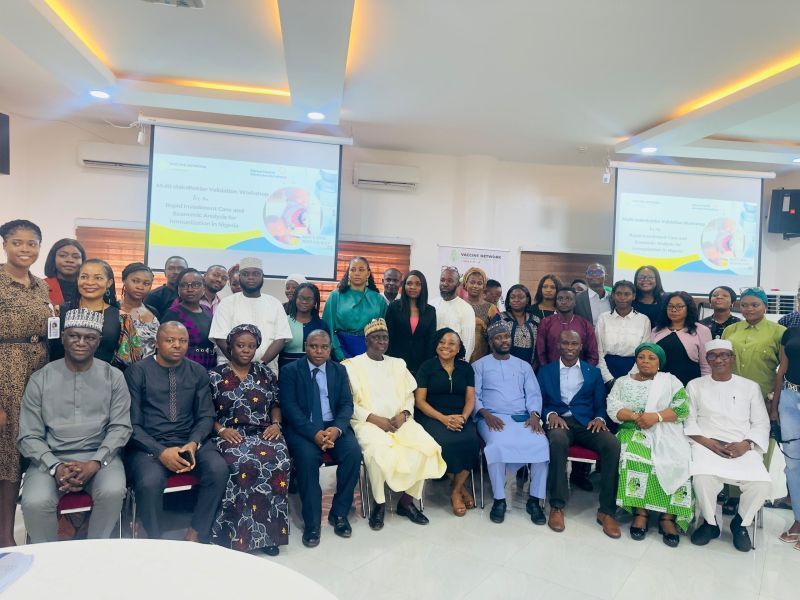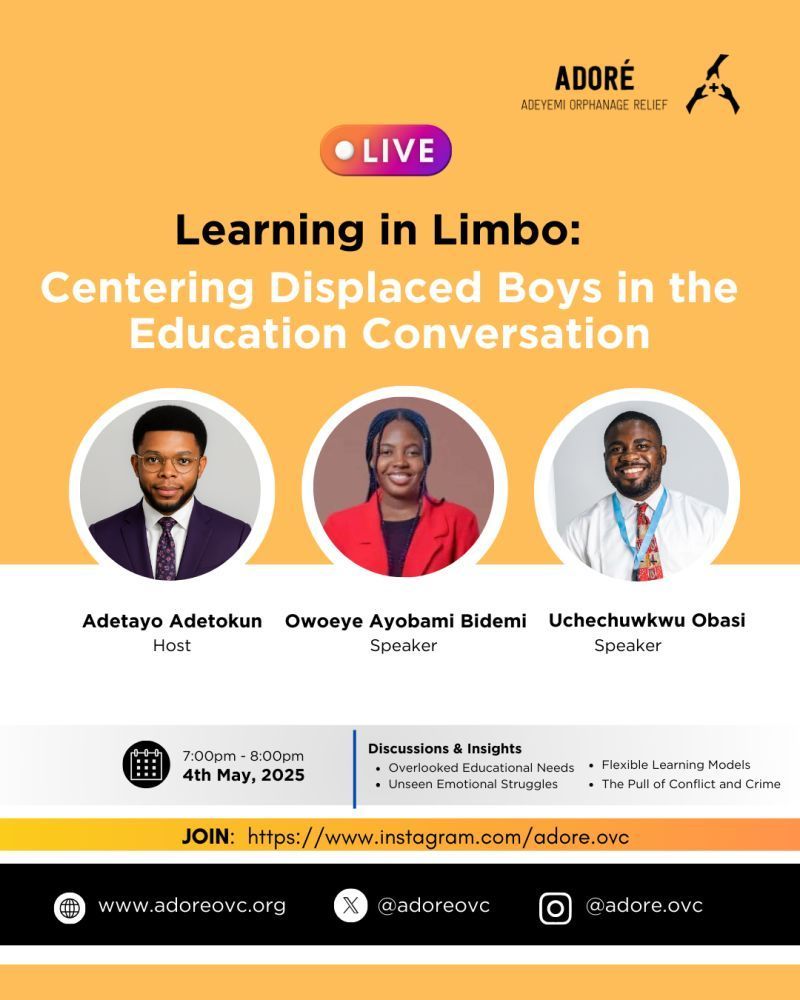Webinar Alert!!
This is a subtitle for your new post

Adeyemi Orphanage Relief recently hosted its bi-monthly virtual webinar titled Building Safe Spaces: Child Protection Strategies in Humanitarian Settings. The session brought together a small but focused group of child protection advocates to examine how conflict, displacement, and crisis situations continue to endanger the well-being of children across Nigeria. The goal was to explore practical ways to create and sustain protective environments where children can not only survive but thrive. The webinar was facilitated by Aritaya and featured two expert speakers with deep experience in humanitarian response and child welfare.
Objectives
- To identify unique child protection risks in humanitarian and conflict-affected settings
- To examine the emotional and psychological toll of displacement and trauma on children
- To understand the influence of cultural norms and gender roles on child protection
- To promote community-led strategies and systems that protect vulnerable children
About the Speakers
- Daniel Brits Adisa is an educator, writer, podcaster, and social commentator. His work combines storytelling, advocacy, and education to promote justice and inclusion. Daniel shared insights on the impact of displacement on children, emphasizing how separation from family often leads to exploitation and deep psychological trauma.
- Emmanuel, a public health advocate and Country Director at Health is World Youth Initiative (One Child Africa), brought in experiences from grassroots work in Northern Nigeria. With a background in pharmacy and youth development, he discussed how community engagement and cultural re-education are vital to strengthening child protection efforts.
Highlights of the Conversation
- Family separation, exploitation, malnutrition, and trauma are key risks for children in humanitarian contexts.
- Many children suffer Post-Traumatic Stress Disorder (PTSD) and emotional deregulation after exposure to violence.
- Harmful cultural practices, such as child labor disguised as trade apprenticeships and the Almajiri system, increase displacement and exploitation risks.
- Community leaders play a crucial role in redefining child protection norms through dialogue, education, and policy reform.
- There is an urgent need to unlearn and relearn societal beliefs that hinder children’s rights and well-being.
Call to Action
The conversation concluded with a shared call for community engagement, mindset change, and policy reform. All participants agreed that protecting children requires collaborative effort—from caregivers to youth advocates and local leaders. As Emmanuel noted, addressing these issues begins by redefining what it means to protect a child in today’s world. Adeyemi Orphanage Relief encourages everyone to continue the conversation and contribute to creating safer environments for children, especially in crisis-affected communities.
To follow the work of Adeyemi Orphanage Relief, visit www.ador.ovc.org or find them on Facebook, LinkedIn, Instagram, and Twitter at @ador.ovc.
Watch Full Conversation. HERE



